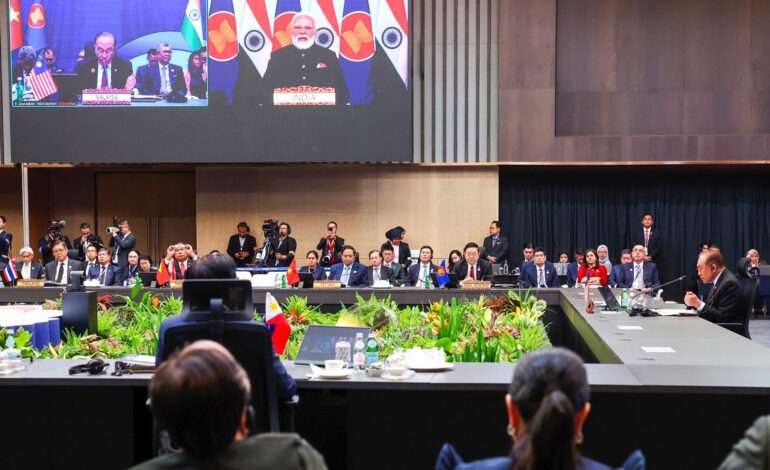
ASEAN-India Summit lays foundation for multipolar, sustainable regional order: Report
The recent ASEAN-India Summit in Kuala Lumpur has been hailed as a pivotal step toward shaping a multipolar, inclusive, and sustainable regional order, according to a report by One World Outlook.
The report emphasized that by steering away from unilateralism, ASEAN and its partners — led by India — signaled a shift toward a cooperative framework where collective progress outweighs individual dominance. The summit underscored Southeast Asia’s intent to anchor itself amid economic uncertainties and geopolitical realignments through stronger partnerships and shared regional goals.
Key outcomes included the adoption of the ASEAN Community Vision 2045, the ASEAN-India Action Plan 2026–2030, and a Joint Leaders’ Statement on Sustainable Tourism — reflecting the bloc’s commitment to pragmatic regionalism and tangible results.
The report noted that the timing of the summit, coinciding with renewed US-China dialogues and parallel engagements with Japan, Australia, and the EU, added a strategic layer to ASEAN’s evolving diplomacy. “ASEAN’s balancing act offers smaller economies real agency without deepening divides,” the report said.
India’s role was described as steady and constructive, with contributions in disaster management, renewable energy training, maritime security, and technology cooperation. The proposed Southeast Asia Centre at Nalanda University and initiatives in rare earths and semiconductors were cited as examples of how India is helping build regional capacity.
The inclusion of Timor-Leste as ASEAN’s 11th member, support for Quick Impact Projects, and proposals for regional defence and maritime heritage dialogues also reflected ASEAN’s adaptability and inclusive approach to development and security.